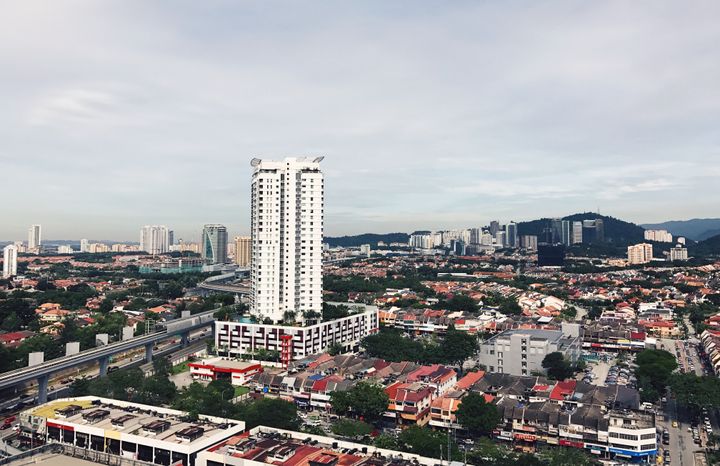Understanding the Rajasthan Real Estate Regulatory Authority Order - Shreenath Oasis Case
Stay informed and intrigued with #RERAInsights on the Rajasthan Real Estate Regulatory Authority Order in the captivating Shreenath Oasis Case. Gain valuable knowledge about real estate regulations. #RealEstate #Rajasthan

Welcome to a comprehensive overview of the Rajasthan Real Estate Regulatory Authority (RERA) Order pertaining to the Shreenath Oasis case. In this article, we'll delve into the details of the complaints filed under the Real Estate (Regulation and Development) Act, 2016 (RERA Act) and the subsequent proceedings. This case involves four complainants and their grievances against the developers and a financial institution, presenting a critical issue in the real estate industry. Let's explore the background and the significance of this case for both buyers and developers.
Background of the Case
To better understand the current scenario, it is essential to comprehend the framework that governs the real estate sector in India. The RERA Act was established to protect the interests of homebuyers and regulate the real estate sector's functioning. It ensures transparency, accountability, and timely completion of projects, safeguarding the rights of consumers.
The Rajasthan Real Estate Regulatory Authority is entrusted with the implementation and enforcement of the RERA Act in the state. Additionally, the case involves the Securitization and Reconstruction of Financial Assets and Enforcement of Security Interest Act, 2002 (SARFAESI Act), which enables banks and financial institutions to recover their dues by taking possession and selling properties pledged as collateral.
The context of the complaints is crucial in understanding the dynamics between the buyers, developers, and the bank involved in the project. It sheds light on the circumstances that led to the disputes and the subsequent legal actions taken by the parties involved.
Parties Involved
The case revolves around four complainants and several respondents, including Aakriti Landcon Private Limited (Respondent No. 1), Naresh Sharma (Respondent No. 2), Purshottam Dayal Dubey (Respondent No. 3), and Baroda Rajasthan Kshetriya Gramin Bank (Respondent No. 4).
The complainants are Indu Bala Sharma, Mamta Shrivastava & Rakesh Shrivastava, Surendra Kumar Katyal, and Sunita Sharma. Each of them purchased flats in the Shreenath Oasis project and filed individual complaints before the Rajasthan RERA.
The bank, represented by Shri Arun Kumar Gupta, plays a critical role as Respondent No. 4, given its actions under the SARFAESI Act. The involvement of multiple parties brings forth complex legal and ownership disputes.
Summary of Complaints
The complainants have highlighted similar concerns in their respective complaints. They have detailed the flat they bought, the total consideration paid, and the date of possession. Their grievances stem from the fact that despite owning the flats and possessing valid sale deeds, Respondent No. 4, the bank, has initiated actions under the SARFAESI Act, claiming possession of the entire project.
The complainants argue that they were unaware of any loan transactions involving the bank and maintain that they have rightful ownership and possession of the flats they purchased.
Respondent No. 4: Baroda Rajasthan Kshetriya Gramin Bank
As Respondent No. 4, the bank has exercised its rights under the SARFAESI Act to secure its loan. However, during the proceedings, the bank's representative clarified that they have not taken physical possession of the project yet and do not intend to do so immediately. Nonetheless, they reserve the right to recover their loan and may consider taking possession of the project in the future.
The bank claims that the complainants failed to obtain a No Objection Certificate (NOC) from the bank before purchasing the flats, which, they argue, may affect the complainants' claim to ownership.
Complainants' Arguments
The complainants vehemently refute the bank's claims and emphasize their right to ownership and possession based on the valid sale deeds executed and registered in their names. They assert that they had no knowledge of any loan transactions and are not party to any such arrangements between the respondents.
Their primary plea is to protect their ownership and possession rights, which are at stake due to the actions initiated by Respondent No. 4. They request an interim order from the Rajasthan RERA to safeguard their interests until a final resolution is reached.
Respondents' Response
Respondents 1, 2, and 3 have presented counterarguments, questioning the complainants' failure to obtain an NOC from the bank before purchasing the flats. They claim that the bank holds a better title to the flats due to this oversight. However, this contention has been challenged by the complainants, who assert that they were not informed about any such requirement.
The bank's intention to recover its loan is at the core of the disputes, raising questions about the balance between financial institutions' rights and protecting homebuyers' interests.
Relevant Precedent
The Hon'ble Chairman refers to a relevant precedent set in the matter of Union Bank of India in "Mukesh Agarwal versus SNG Real Estate Private Limited & Ors." (Complaint No. RAJ-RERA-C-2020-3958) and connected matters. The decision in this previous case serves as a potential guideline for the current proceedings.
Interim Order and Future Proceedings
In light of the complex legal and ownership issues involved, the Hon'ble Chairman has issued an interim order to maintain the status quo. Respondent No. 4 is directed not to take any steps that would oust the complainants from their flats or proceed with the auction or sale of the four flats in question.
The matter is scheduled for a final hearing on 15th May 2023, where the respondents are required to file their replies well in advance. Until then, the interim order remains in effect to safeguard the interests of the complainants.
Conclusion
The Shreenath Oasis case presents a significant challenge for the Rajasthan Real Estate Regulatory Authority in balancing the rights of buyers and financial institutions. The complaints highlight the need for transparency and adherence to regulations in the real estate sector. The final resolution will set a precedent and hold implications for similar cases in the future. As the proceedings continue, stakeholders in the real estate industry closely watch the outcome, which will shape the landscape of homebuyers' rights and financial institutions' actions under the RERA Act.
Note: The information provided in this article about Rajasthan Real Estate Regulatory Authority (RRERA) is for informational purposes only. It is not intended as legal or professional advice and readers should consult qualified professionals for advice specific to their circumstances. The information provided in this article is based on the(1) Complaint No. RAJ-RERA-C-N-2023-6113, (1) Complaint No. RAJ-RERA-C-N-2023-6115, (1) Complaint No. RAJ-RERA-C-N-2023-6117 and (1) Complaint No. RAJ-RERA-C-N-2023-6114 before the Rajasthan Real Estate Regulatory Authority
We hope you found our blog insightful and engaging! We appreciate your time and interest. If you enjoyed reading it, don't forget to subscribe to our newsletter to receive regular updates on our latest content. Visit our website www.reunionhq.in to know more.



